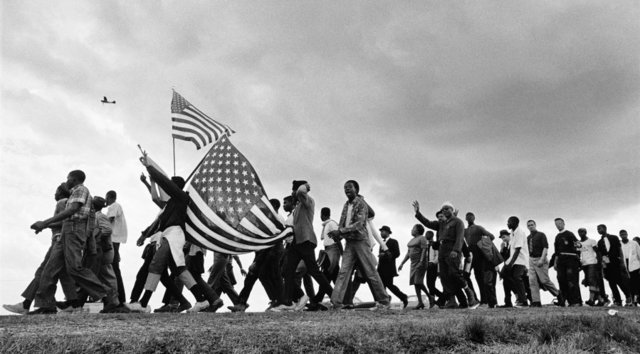150 years ago today, on June 19, 1865, Major General Gordon Granger steamed into Galveston, Texas, and informed the people of that state that “all slaves are free.” The day has become an unofficial holiday (except in Texas, where it is an official holiday): a kind of Independence Day for African-Americans.
In the wake of the killings at Mother Emanuel AME Church in Charleston, South Carolina, and as people gather in mourning, vigil, and prayer around the nation, Juneteenth is a celebration taking on new urgency.
Melanie Eversley at RNS writes:
Over time, the observance marked by dancing and music has come to celebrate freedom and black achievement nationally. Those concepts go hand-in-hand with with the theme of Charleston, a city steeped in black history and defiance.
Americans in the last 24 hours seem to have embraced the Juneteenth concept and rewrapped it as a way to honor the Charleston victims. Various organizations and people were sending out word that the victims would be remembered during already planned Juneteenth observances.
The National Black United Front was organizing a Juneteenth Inter-Faith Prayer Vigil for Emanuel AME Church, slated for 7 p.m. EDT at the African American Civil War Memorial and Museum in Washington.
“There is a long history of bombings, burnings, shootings and other acts of terrorism committed against the black church and we would like to bring more light to this,” said Salim Adofo, national vice chairperson of the organization.
Kenneth C. Davis, writing in the New York Times, says that Juneteenth is everyone’s holiday.
Frederick Douglass voiced that fundamental divide in a memorable speech on July 4, 1852. “The rich inheritance of justice, liberty, prosperity and independence, bequeathed by your fathers, is shared by you, not by me,” he said. “This Fourth [of] July is yours, not mine.”
Juneteenth is the flip side of the Independence Day coin. One hundred and fifty years after General Granger told the enslaved people of Texas they were free, Juneteenth is viewed by many of those who are aware of it as an “African American holiday.”
That perception unfairly diminishes the fundamental significance of Juneteenth. The day should be recognized for what it is: a shared point of pride in the symbolic end of centuries of racial slavery — a crime against humanity and the great stain on America’s soul. As meaningful as Independence Day itself, Juneteenth completes the circle, reaffirming “life, liberty and the pursuit of happiness” as the rights of all, not a select few.

